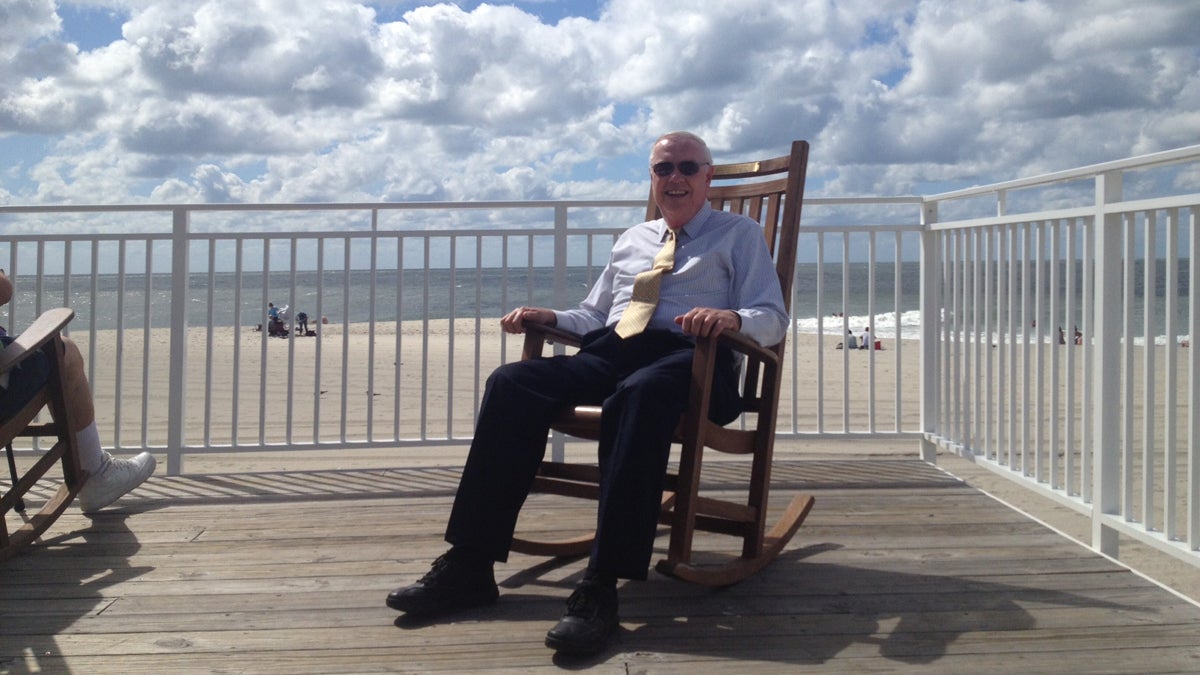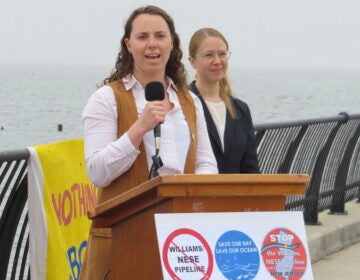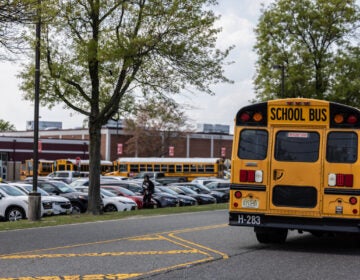Cape May’s French-Canadian connection, by way of Quebec
Listen
Cape May Mayor Ed Mahaney (John Weber/for NewsWorks)
Take a walk along the boardwalk in Cape May, New Jersey, on a warm summer’s evening, and there’ s a pretty good chance that you’ll hear conversations with a French accent.
You’re as likely to see a car exiting the Garden State Parkway for Cape May with a blue-and-white Quebec license plate as the more familiar tags of Pennsylvania, New Jersey or New York.
For decades, French-Canadian tourists have been as much a part of Cape May as the quaint and colorful Victorian houses.
The international visits began nearly half a century ago, said Cape May Mayor Ed Mahaney, as working-class French Canadians, or Quebecers as they call themselves, were just looking for an affordable place to vacation
“At that time, many of them were in the industrial field, so the factories used to shut down for two weeks at a time, so it was a perfect marriage between the two countries,” said Mahaney.
Merchants in the Cape May region were quick to recognize what was happening and eager to capitalize on the trade.
One was an enterprising hotel owner named Harry Hirsch, whose grandson, Jonathan Hirsch, today is one of the owners of the Montreal Beach Resort.
“Almost 50 years ago, when my grandfather opened up the hotel, we were throwing around names, so we said, ‘There are a lot of people from Montreal and Quebec coming down to Cape May … well, let’s attract them and call it the Montreal Beach Resort,'” recalled Jonathan Hirsch.
To amplify that sort of welcome to Canadian travelers and their vacation revenue, Cape May County tourism officials hired Canadian marketer Nicolle Dufour to help publicize Cape May throughout the French-speaking province.
Although Dufour gets a relatively small part of Cape May County’s $320,000 advertising budget, she’s able to pack a wallop with the money she does get.
“I started to work on producing press releases and try to get some journalists to go and visit because usually it’s the main thing,” Dufour said of her nearly 20-year-strategy. “You have one good article in the newspaper, and then it goes on.”
That strategy is paying off exponentially, according to Diane Wieland, director of tourism for Cape May County.
“We’ve brought a lot of Canadian journalists down here over the years, and they have written millions of dollars in articles that we could never afford to buy in advertising,” she said. “We have found that has absolutely been the key to getting our message out there.”
Estimates are that French Canadians account for up to 20 percent of Cape May’s summer tourism, according to estimates, making them the fourth-largest geographic contingent following Philadelphia, New York and North Jersey.
To keep the Canadians coming back, local officials have gone out of their way to make the Quebecers feel right at home in Cape May.
One such initiative came by way of Atlantic Cape Community College, which received grant money to do hospitality training. The Cape May County Department of Tourism suggested the funds go toward teaching conversational French to front line staff.
“The college sent in two instructors, one to teach about the language and one to teach about the culture,” said Wieland. “So it’s just one more step in making the Canadians feel more welcome.”
Back at the Montreal Beach Resort, Hirsch has other ideas on how to make the French-Canadians feel welcome.
“We have a liquor store, and … when we know the French-Canadians are coming in, we bring in a lot of product that we know they are going to enjoy as well,” he said.
With the success of attracting Quebecers to the region, tourist officials have started reaching out to other sections of Canada.
They’re quick to point out, however, they know their bread and butter — perhaps we should say their “pain et beurre” — are the French Canadians, and they intend to keep them happy for years to come.
“We are building a multigenerational following, which is very important to us,” said Mahaney.
WHYY is your source for fact-based, in-depth journalism and information. As a nonprofit organization, we rely on financial support from readers like you. Please give today.




